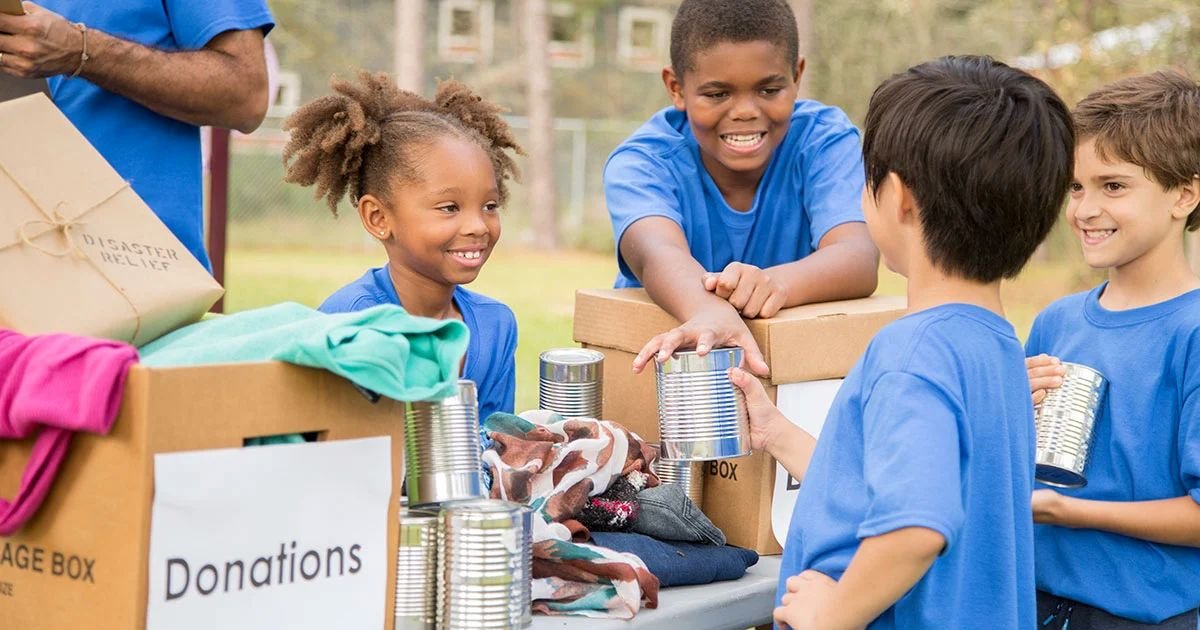When it comes to supporting vulnerable groups in society, children with special needs often face the greatest challenges. From accessing healthcare to pursuing education and achieving independence, the journey for these children is far from easy. That’s why trusted charities such as Abshar Atefeha Foundation in Iran, along with international organizations, play a critical role in transforming lives.
But how exactly do donations help charities for children with special needs bring meaningful change? Beyond numbers and financial reports, every contribution creates real stories of hope, resilience, and empowerment.
1. The Unique Challenges Faced by Children with Special Needs
Children with special needs may live with physical disabilities, developmental disorders, or chronic illnesses. Their challenges often extend beyond medical issues to include:
Educational Barriers: Limited access to inclusive classrooms and adaptive learning resources.
Healthcare Gaps: Expensive treatments, therapy sessions, and medical equipment.
Social Stigma: Discrimination and isolation in schools, communities, and workplaces.
Family Struggles: Parents often face financial stress and emotional burnout.
Without targeted support, these children risk being left behind. That’s why charities focusing on special needs are indispensable.
2. The Role of Donations in Addressing These Challenges
Donations act as the lifeblood of nonprofit organizations. Unlike businesses, charities rely on contributions from individuals, communities, and institutions to run their programs.
Here’s how donations directly impact children with special needs:
Medical Care: Funding wheelchairs, hearing aids, physical therapy, and life-saving treatments.
Inclusive Education: Providing adaptive learning tools, specialized teachers, and scholarships.
Family Support: Offering counseling, financial aid, and respite care for parents.
Community Awareness: Campaigns that break stigma and promote inclusivity.
Every dollar (or toman) given translates into opportunities that wouldn’t otherwise exist.
3. Global Charities for Children with Special Needs
Across the world, numerous organizations focus on improving the lives of children with disabilities:
Special Olympics: Empowers children with intellectual disabilities through sports.
Easterseals: Provides early intervention services, therapies, and educational programs.
March of Dimes: Works to improve health outcomes for children with birth defects.
Global Fund for Children: Partners with grassroots groups supporting children with special needs.
These organizations show the global scale of the movement, but national charities like Abshar Atefeha make this support locally accessible.

4. Abshar Atefeha Foundation: A Case Study in Impact
As one of Iran’s largest and most trusted NGOs, Abshar Atefeha Foundation has developed extensive programs for children with special needs:
Healthcare Support: Free medical check-ups, treatments, and distribution of assistive devices like wheelchairs and glasses.
Educational Programs: Scholarships, tutoring services, and special learning materials for children with learning disabilities.
Family Empowerment: Microloans and vocational training for parents of children with disabilities, helping them earn sustainable incomes.
Community Inclusion: Organizing awareness campaigns and events to combat stigma against children with special needs.
Emergency Response: Providing food, clothing, and healthcare during natural disasters and crises.
With its 900+ branches across Iran and recognition by the UN ECOSOC, Abshar Atefeha demonstrates how national charities can deliver global-standard impact.
5. The Ripple Effect of Donations
One donation doesn’t just help a single child—it creates a ripple effect:
A child with a new wheelchair can attend school regularly.
An educated child becomes a skilled adult, contributing to society.
Parents relieved of financial burden can focus on nurturing their family.
Communities learn empathy and inclusivity through awareness campaigns.
This multiplier effect ensures that donations create change not just for individuals but for entire families and societies.
6. Transparency and Donor Confidence
One reason charities for children with special needs are trusted is their transparency. Organizations like Abshar Atefeha provide clear financial reports, project updates, and impact stories. This transparency reassures donors that their money is being used effectively and responsibly.
7. Future Opportunities for Growth
The future of charities for children with special needs lies in:
Digital Donations: Expanding global access through secure online platforms.
Technology for Accessibility: Funding assistive technologies like speech-to-text software or AI-based learning tools.
Inclusive Policies: Partnering with governments to improve national legislation for children with disabilities.
Global Partnerships: Collaborating with international NGOs to share knowledge and resources.
With growing awareness, donors can play an even bigger role in shaping inclusive futures.
8. The Role of Trusted Children’s Charities in Fighting Poverty and Hunger
One of the greatest obstacles for children with special needs is not only their disability but also the poverty that surrounds them. Hunger and malnutrition intensify their struggles, limiting their growth, learning capacity, and overall quality of life. This is why trusted children’s charities are at the forefront of tackling poverty and hunger as part of their broader mission.

Read more: The Role of Trusted Children’s Charities in Fighting Poverty and Hunge
1. Why Poverty and Hunger Matter for Children with Special Needs
Nutritional Vulnerability: Children with disabilities often require specialized diets, supplements, or feeding equipment. In poverty-stricken families, these needs are rarely met.
Educational Barriers: Hunger affects focus and learning outcomes, making it harder for children to succeed in school.
Healthcare Limitations: Malnutrition weakens immune systems, leaving children more exposed to illness and infection.
Cycle of Poverty: Without intervention, families remain trapped in a cycle where poverty worsens disability outcomes, and disabilities reinforce poverty.
2. How Trusted Charities Break the Cycle
Trusted children’s charities intervene at critical points to break this devastating cycle:
Food Security Programs: Monthly food baskets, school meals, and emergency food relief ensure children are nourished.
Financial Aid to Families: Providing stipends or microloans so families can afford food and essentials.
Community Kitchens and Feeding Programs: Ensuring children receive at least one balanced meal daily.
Nutrition Education: Training parents on affordable, nutritious diets.
These programs don’t just alleviate hunger in the short term—they build the foundation for long-term independence.
3. Abshar Atefeha Foundation’s Contribution
In Iran, Abshar Atefeha Foundation has been a leader in fighting poverty and hunger among vulnerable families, including children with special needs.
Some of its notable contributions include:
Seasonal Food Aid Programs: Especially during Ramadan, Muharram, and Nowruz, the foundation distributes large-scale food packages.
Ongoing Food Basket Programs: Providing essential goods to thousands of families each month.
Emergency Hunger Relief: Supporting children and families affected by floods, earthquakes, or economic crises.
Integrated Support: Combining food aid with scholarships, healthcare, and family empowerment, ensuring that hunger relief leads to sustainable progress.
4. Global Examples of Trusted Charities Fighting Hunger
Beyond Iran, global charities also demonstrate how tackling poverty and hunger is central to supporting children:
Save the Children: Runs school feeding programs in Africa and Asia.
World Food Programme (WFP): Provides emergency food aid to millions of children worldwide.
CARE International: Combats child malnutrition with community-based interventions.
UNICEF: Delivers emergency nutrition packs and long-term food security projects.
These organizations, like Abshar Atefeha, show that fighting hunger is inseparable from supporting children’s development.
5. The Ripple Effect of Hunger Relief
Addressing poverty and hunger through trusted charities creates transformative ripple effects:
Children can attend school instead of working for food.
Families save money that can be reinvested in healthcare or education.
Communities build stronger bonds through shared meal programs.
Donors witness measurable improvements in child health and growth.
In this way, donations directed toward hunger relief don’t just fill stomachs—they open doors to brighter futures.
Conclusion
Donations are far more than financial transactions—they are lifelines. For children with special needs, they represent hope, independence, and dignity. Whether funding a therapy session, purchasing a hearing aid, or enabling a scholarship, every contribution changes lives.
Abshar Atefeha Foundation exemplifies how dedicated charities turn donations into tangible progress for children with disabilities in Iran. By supporting such trusted organizations, donors ensure that every child—regardless of their abilities—has a chance to thrive.
FAQ (Frequently Asked Questions)
Why are donations crucial for children with special needs?
They fund healthcare, education, and community inclusion programs that would otherwise be inaccessible.
How does Abshar Atefeha help children with disabilities?
Through medical care, scholarships, assistive devices, and family support services.
Can small donations make a difference?
A3: Yes—even small contributions can provide meals, books, or therapy sessions that change a child’s life.
How do I ensure my donation is used effectively?
Support verified organizations like Abshar Atefeha that provide transparent reports and global recognition.
What’s the long-term impact of donating to charities for children with special needs?
Beyond immediate relief, donations foster education, independence, and inclusion—breaking cycles of poverty and discrimination.




